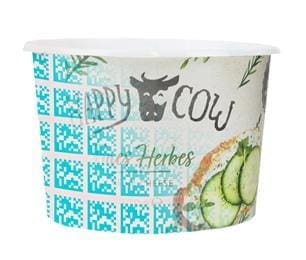- AIM, the European Brands Association, has launched HolyGrail 2.0 with Mondi and other partners across the value chain to prove the viability of digital watermarking for sorting waste at scale.
- Digital watermarks have the potential to revolutionise the way we sort and recycle waste, increasing the commercial value of waste so that it can be reused again as a resource.
- Mondi was a founding member of the Pioneer Project HolyGrail and continues to play an active role to validate the technology. This includes running trials with partners across the value chain.
September 2020 – Mondi, a global leader in packaging and paper, has joined forces with AIM, the European Brands Association, and other partners across the value chain to prove the viability of digital watermarking for sorting waste at scale. The HolyGrail 2.0 initiative has the ambitious goal of assessing whether this pioneering digital technology can enable better sorting and higher-quality recycling rates for packaging in the EU, thereby driving a truly circular economy.
Mondi was a founding member of the original Pioneer Project HolyGrail, facilitated by the Ellen MacArthur foundation. Now over 85 partners across the value chain are working together to refine and commercialise this concept, with Mondi continuing its active role in trialling the innovative technology.
Postage stamp sized watermarks on packaging—which are not visible to the naked eye—make it possible to effectively sort the material into specific waste streams. Conventional sensor technologies (e.g. near infrared spectroscopy) are not able to reliably identify multi-material packaging, so they can end up as contaminants when recycling mono-materials. With this new technology, it becomes possible to separate materials more accurately and generate new waste streams, which then can be recycled with enhanced recycling technologies. These digital watermarks also provide other opportunities. For example, consumers can use a smartphone app to find details about the packaging and how to recycle it, and brand owners can add product details as well.
Mondi has played an important role in this project since the beginning. Graeme Smith, Head of Product Sustainability for Flexible Packaging and Engineered Materials, explained: “As members of the Ellen MacArthur Foundation’s New Plastics Economy, we were part of the initial team to bring the Pioneer Project, HolyGrail, to life. At Mondi, we believe packaging should be sustainable by design and we see the need to improve the sorting and separation of packaging waste as part of a circular economy. Digital watermarks have the potential to make this a reality. Improved recycling will increase the value of packaging waste, driving higher collection rates and making it a valuable commercial resource for the future.”
As HolyGrail 2.0 progresses, Mondi is well positioned to contribute to its success by validating digital watermarks with partners along the value chain. Mondi will be conducting full-scale industrial trials with key customers in the near future.

